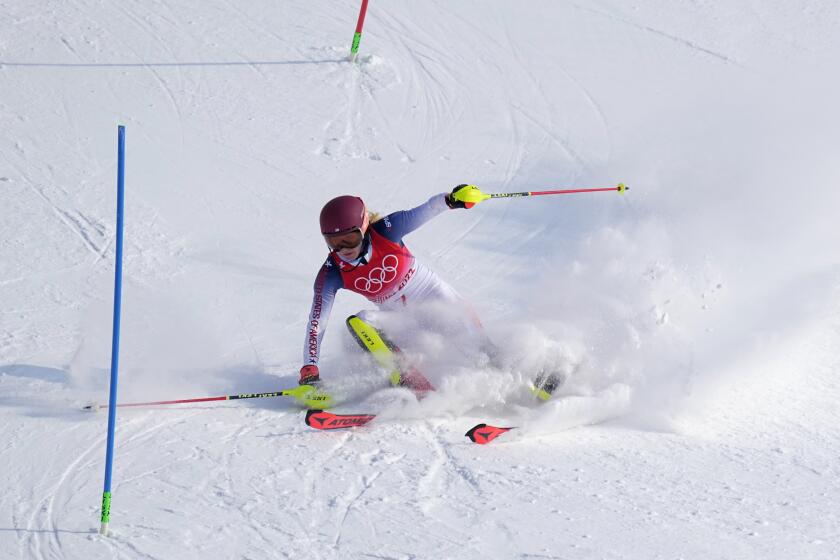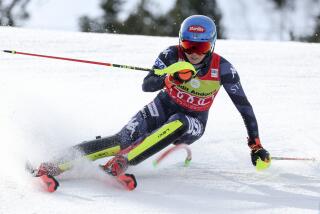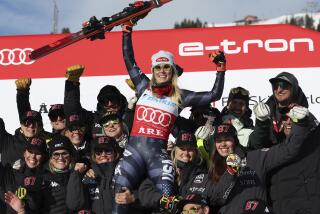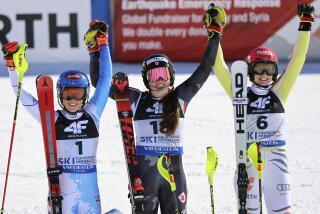After heartbreak, Mikaela Shiffrin finds some satisfaction with ninth in super-G
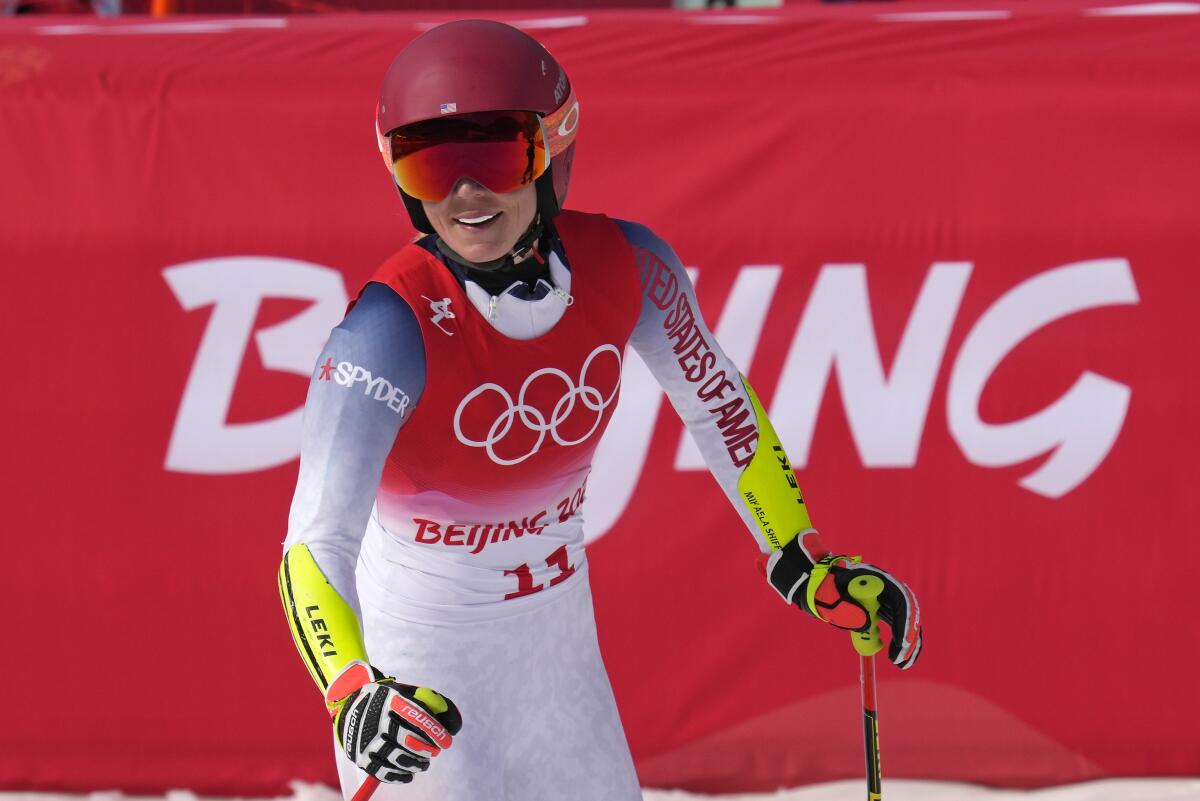
BEIJING — In a normal time, Mikaela Shiffrin finishing a race wouldn’t be worth mentioning.
The world’s top female skier has piled up victories and gold medals and world championships with such regularity that the accomplishments became routine. She paired the success that appeared to come so easily — at least from the outside — with a thoughtful, vulnerable approach that is unusual for such a dominant athlete.
Shiffrin’s pursuit of medals in five individual events at the Yanqing National Alpine Centre was supposed to be one of the main attractions at the Winter Olympics.
Mikaela Shiffrin has bombed out of two straight races, skiing only 16 combined seconds. She vows to keep competing at Beijing Olympics.
Instead of medals, however, the Games have been gut-wrenching reminder that even the best athletes are still human.
That’s why when Shiffrin crossed the finish line in the super-G on Friday to scattered applause on a hazy afternoon, the ninth-place showing was a kind of victory.
“Coming back out and getting the chance to race again was just the perfect thing to do,” Shiffrin said.
She skied out of her first two races at the Games — the giant slalom and slalom — earlier in the week and only managed to stay on the course for a combined 16 seconds in the events.
The stunning, inexplicable start led to plenty of questions, most of all from Shiffrin. In a candid, tearful discussion with journalists in the mixed-zone Wednesday after the slalom, her signature event, she grasped for an answer to why this was happening. She said she was “at a loss” and had to “question a lot” and admitted “I don’t know how to handle it.”
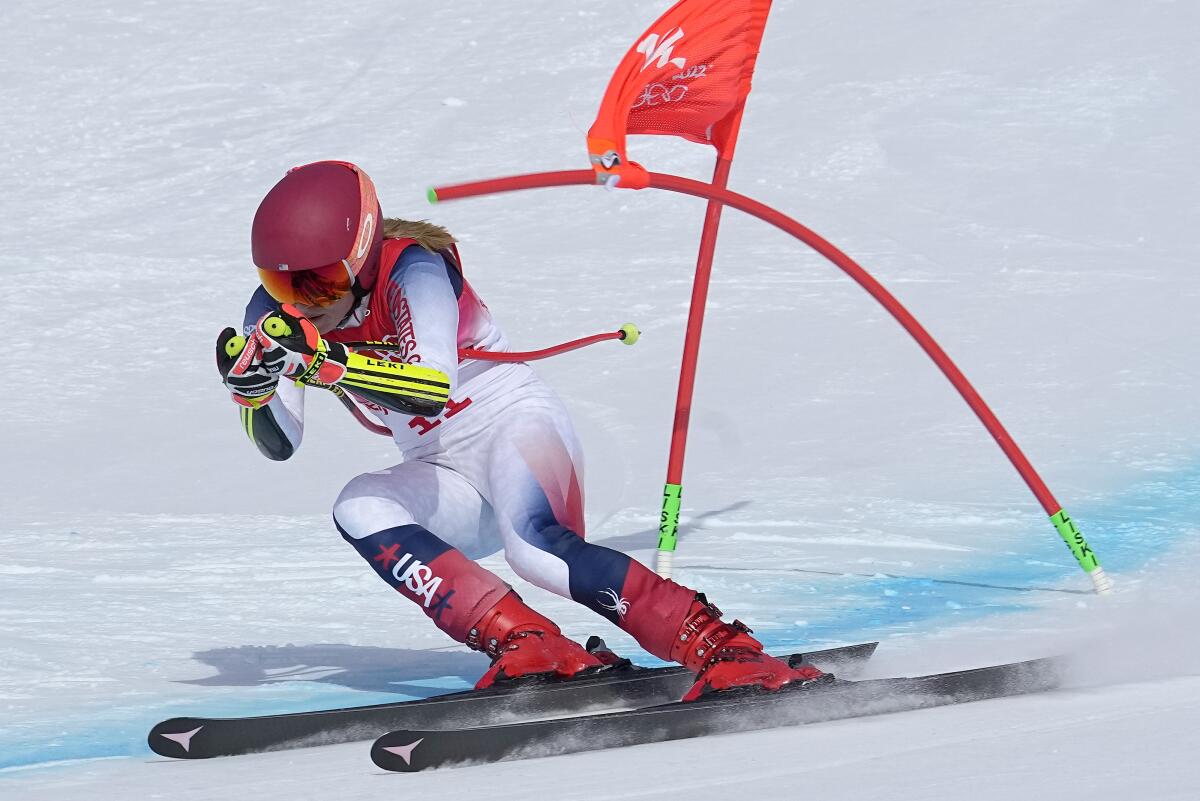
The super-G provided the start of a path back to normalcy or at least to the finish line.
“It’s a really big relief to be here now in the finish, having skied a run well,” Shiffrin said. “I wasn’t skiing safe or anything, but I also did get to the finish and that’s really nice for my heart to know that it’s not totally abandoning everything I thought I knew about the sport.”
Though Shiffrin is the rare skier who can pile up victories in both the technical and speed events, she’s only competed in the super-G seven times in the last two years. Those races included four podiums and she’s ranked eighth in the world, but it’s not a go-to event. Her last super-G win came on Jan. 26, 2020, in Bansko, Bulgaria, on the World Cup circuit. It was her final stop before the sudden death of her father, Jeff, after an accident at the family’s home in Edwards, Colo., in early February of that year.
On Friday, Shiffrin worked through the Rock course as temperatures crept into the low 40s and the small group of spectators allowed to watch from the grandstands waved blue and pink flags emblazoned with the image of Bing Dwen Dwen, the popular panda mascot of the Games.
The onlookers seemed to be urging Shiffrin on, collectively sucking in their breath when she took a turn unexpectedly wide or wobbled for an instant.
She finished without incident in 1 minute, 14.30 seconds and stood alone for a few seconds as a cowbell tinkled and a television camera focused on her from a few feet away.
Switzerland’s Lara Gut-Behrami won the super-G in 1:13.51, followed by Austria’s Mirjam Puchner and Switzerland’s Michelle Gisin. Ester Ledecka, the defending gold medalist in the event from Czechoslovakia who won gold on a snowboard in the parallel slalom earlier this week, placed fifth.
More medal opportunities await Shiffrin — in the downhill, the combined, and mixed team parallel event.
Mikaela Shiffrin looks to bounce back in the Super-G after not finishing in the super slalom and slalom at the Olympics.
More to Read
Go beyond the scoreboard
Get the latest on L.A.'s teams in the daily Sports Report newsletter.
You may occasionally receive promotional content from the Los Angeles Times.
